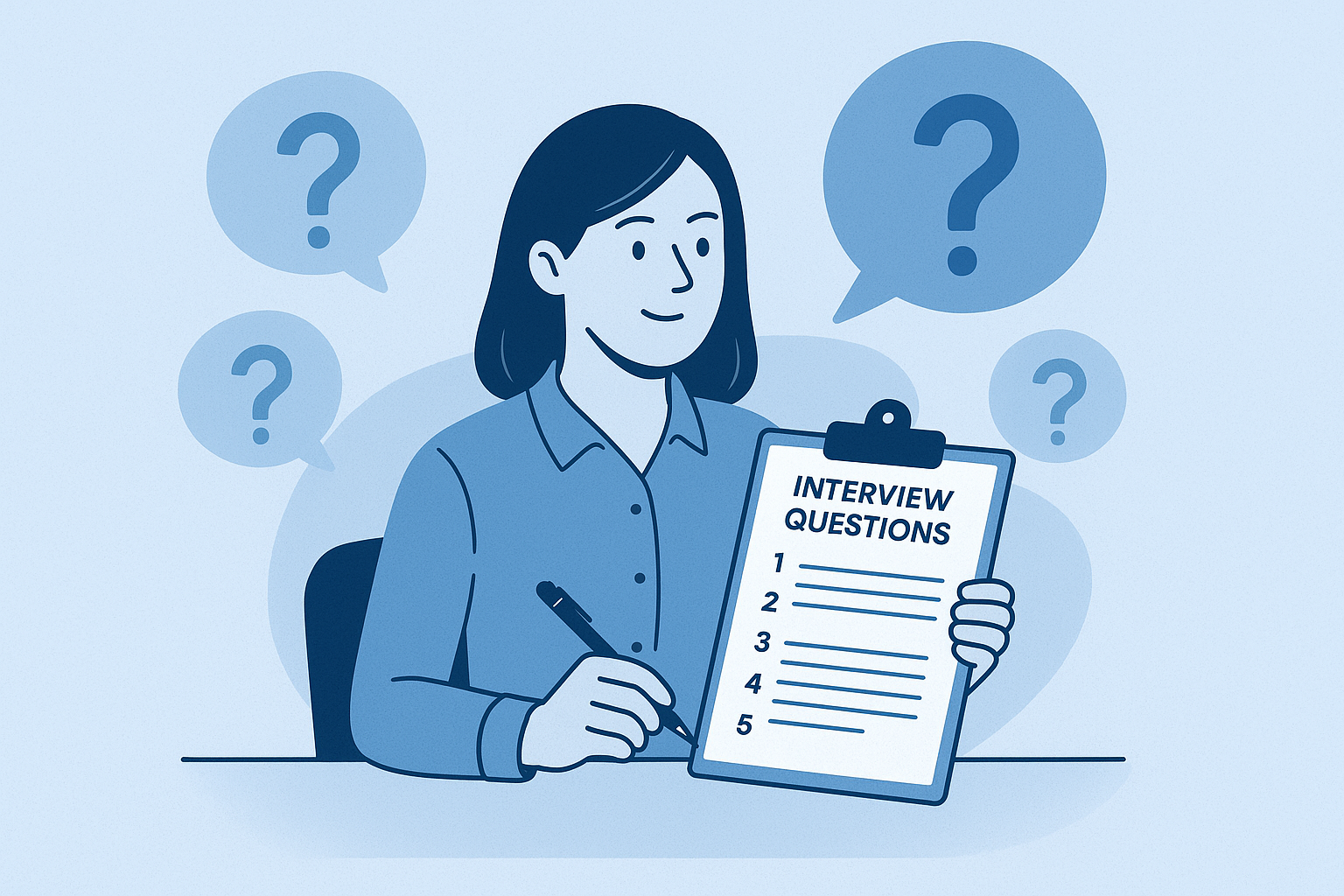Interview Questions: How to Craft Effective Questions That Predict Success
What are Interview Questions?
Interview Questions are prompts posed by employers to job candidates during the recruitment process to assess their skills, experience, competencies, and fit for a role.
Well-designed interview questions help uncover how candidates think, act, and solve problems — providing critical insights that guide objective hiring decisions.
Effective interview questions are a core component of Structured Interviews and Skills-Based Interviewing, ensuring that hiring decisions are based on evidence, not assumptions.
Why Are Good Interview Questions Important?
Using carefully crafted interview questions leads to several key benefits:
Uncover Real Abilities
Thoughtful questions reveal not just what candidates know, but how they apply their knowledge.Enhance Objectivity
Standardized questions help minimize unconscious bias and create a fairer Candidate Experience.Predict Future Performance
Behavioral and situational questions provide insight into how a candidate may perform in the role.Support Consistent Evaluation
Using the same set of questions for each candidate simplifies assessment through Candidate Evaluation Forms.

Main Types of Interview Questions
Type | Description | Example |
|---|---|---|
Behavioral Questions | Ask about past experiences to predict future behavior. | "Tell me about a time you had to manage a difficult project." |
Situational Questions | Pose hypothetical scenarios and ask how the candidate would respond. | "What would you do if you were asked to lead a project with tight deadlines?" |
Skills-Based Questions | Focus directly on skills related to the role. | "Describe a time when you successfully debugged a complex software issue." |
Cultural Fit Questions | Assess how well a candidate aligns with the company’s values. | "What type of work environment helps you thrive?" |
Technical Questions | Test job-specific technical knowledge or capabilities. | "How would you optimize a database query for faster performance?" |
How to Create Effective Interview Questions
Follow these steps to design questions that drive better hiring outcomes:
Analyze the Role Requirements
Review the Job Requisition to identify critical skills, knowledge, and behaviors needed.Focus on Core Competencies
Target the abilities that are most predictive of success in the role, aligning with a Skills-Based Hiring approach.Use Open-Ended Questions
Avoid yes/no questions. Encourage detailed answers that demonstrate thinking and reasoning.Balance Behavioral, Situational, and Technical Questions
Cover a range of question types to assess both hard skills and soft skills.Prepare a Scoring Guide
Create clear criteria to evaluate responses consistently across candidates, linked to the Candidate Scorecard.
Examples of High-Impact Interview Questions
Behavioral Question:
"Describe a situation where you had to work with a difficult colleague. How did you handle it?"
Situational Question:
"Imagine you're leading a team that misses a critical deadline. How would you address the issue?"
Skills-Based Question:
"Tell me about a project where your analytical skills directly influenced the outcome."
Technical Question:
"Walk me through how you would set up an automated testing environment for a web application."
Cultural Fit Question:
"How do you typically adapt to changes in workplace processes or leadership?"
Common Mistakes to Avoid
Asking Hypothetical Questions Only
Over-relying on hypotheticals without checking real-world behavior can lead to inaccurate assessments.Focusing Solely on Hard Skills
Ignoring soft skills like communication or teamwork can miss crucial success factors.Asking Leading Questions
Questions that suggest a "right" answer can distort candidates' true responses.Lack of Structure
Different questions for different candidates reduce comparability and fairness.
FAQ: Interview Questions
Q1: How many interview questions should be prepared for each session?
A1: Ideally 8–12 core questions per interview round, ensuring enough coverage without overwhelming candidates.
Q2: Should every interviewer ask the same questions?
A2: Yes, especially in Structured Interview settings, to ensure consistent evaluation across candidates.
Q3: Can candidates also ask questions during the interview?
A3: Absolutely. Candidates asking thoughtful questions during a Reverse Interview demonstrate engagement and critical thinking.
Conclusion
Crafting effective Interview Questions is a foundational skill for building high-performing teams.
By focusing on role-relevant skills, using structured and open-ended formats, and standardizing the evaluation process, hiring teams can make smarter, fairer, and more predictive hiring decisions.
Incorporating skills-based questions, behavioral assessments, and structured evaluation practices helps organizations stay competitive and talent-driven in today’s evolving workforce.
HR Glossary: Master the Language of Modern HR
From recruiting candidates to onboarding new team members, MokaHR gives your company everything you need to be great at hiring.
Subscribe for more information

